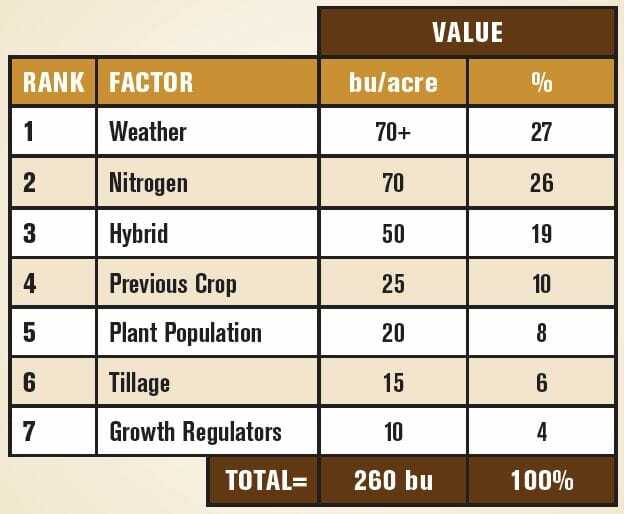Select Silage Hybrids That Fit Your Soils
As you finalize your seed product selections, I’d like to once again share with you the largest factors on corn products as outlined by University of Illinois researcher Dr. Fred Below in his 7 Wonders of Corn Production:
What happens in the field has the biggest impact on the quality we put into the silo, bag or bunk. Below are a few more considerations:
- Weather. If moisture in the field is a limiting factor, consider DroughtGard® or Artesian®. It’s a delicate balance as these specific hybrids may not have the best corn silage yield rating but are the best genetic fit for the acre. Many areas in 2021 suffered from lack of moisture and intense heat, so those areas would have benefited from these traits.
- Nitrogen. Plant food balance is critical. Because corn silage hybrids tend to be much larger in stature, they require additional plant food. A study done in Pennsylvania suggests adding 20 pounds of nitrogen above normal nitrogen usage for grain. Larger plants need more food.
- Hybrid. There are silage-specific hybrids and dual-purpose hybrids. Each has their winning attributes. The nutritionist wants a hybrid for best forage quality. The agronomist wants the best emerging, drought tolerant, hybrid you can find. With so much at stake, I tend to plant the hybrid that is best suited for the soil. There are ways to improve quality from plant spacing, raising the cutter head at chopping time, to using fungicides. If the hybrid is on the wrong soil, however, it’s difficult to manage around that.
- Previous Crop. Root worm control is important, especially for corn on corn. Huge silage hybrids need a solid foundation and an intact, healthy root system. I believe the best corn silage is on alfalfa ground rotated to corn silage because there is a good nitrogen credit from the alfalfa, and the corn can develop a better root system following the tap root of the alfalfa.
- Plant Population. For best results, read and follow all label instructions. Some hybrids, like leafy hybrids, do better under 28,000. Each hybrid has a distinct recommendation listed in the product guide.
- Tillage. My philosophy is do what’s best for the soil, and the soil will do what’s best for you.
- Growth Regulators. Talc USA has shown positive benefits to corn silage yield and quality. Fungicide research has shown 3 tons more corn silage per acre with the application of a specific brand of fungicide. BASF has a new fungicide that shows longer term residual benefits, which hopefully translates into healthier plants and fewer mycotoxins in the corn silage.
In summary, the hybrid that performs best in your specific soils likely will deliver the best end result. Use Latham’s performance data, as well as data from universities and on-farm research, to help you plan for next season.
